
Yaren: The Heartbeat of Nauru
Welcome to Yaren, the unofficial capital and vital hub of Nauru, the world's smallest island nation. Nestled in the southwestern part of this Pacific paradise, Yaren offers a unique blend of natural beauty, cultural heritage, and a laid-back island lifestyle. This tiny district is the seat of government for Nauru, making it a pivotal point for both locals and visitors alike. Discover the rich history that Yaren holds within its borders. The remnants of World War II can be seen in the form of bunkers and coastal pillboxes, offering a glimpse into the past. The Yaren District is home to the Parliament House, where the country's key decisions are made. A visit to this site provides insight into the political fabric of Nauru. Yaren is not just about history and governance; it is also a gateway to Nauru's natural wonders. The Anibare Bay, located just a short drive away, is a must-visit for its pristine beaches and crystal-clear waters. For those interested in the island's cultural aspects, the Moqua Caves and the underground lake are fascinating natural attractions that offer a sense of adventure. Yaren's small size is one of its greatest charms, allowing visitors to experience the entire district in a short period while still leaving ample time to explore the rest of Nauru. Whether you're here to soak up the sun, delve into history, or simply relax, Yaren promises a unique and intimate experience that you won't forget.
Local tips in Yaren
- Visit the Parliament House to gain insight into Nauru's political landscape.
- Check out the World War II relics scattered around Yaren for a historical tour.
- Don't miss Anibare Bay, a short drive from Yaren, for stunning beaches and clear waters.
- Explore the Moqua Caves and the underground lake for an adventurous experience.
- Given its small size, Yaren can be explored quickly, leaving time to visit other parts of Nauru.
Yaren: The Heartbeat of Nauru
Welcome to Yaren, the unofficial capital and vital hub of Nauru, the world's smallest island nation. Nestled in the southwestern part of this Pacific paradise, Yaren offers a unique blend of natural beauty, cultural heritage, and a laid-back island lifestyle. This tiny district is the seat of government for Nauru, making it a pivotal point for both locals and visitors alike. Discover the rich history that Yaren holds within its borders. The remnants of World War II can be seen in the form of bunkers and coastal pillboxes, offering a glimpse into the past. The Yaren District is home to the Parliament House, where the country's key decisions are made. A visit to this site provides insight into the political fabric of Nauru. Yaren is not just about history and governance; it is also a gateway to Nauru's natural wonders. The Anibare Bay, located just a short drive away, is a must-visit for its pristine beaches and crystal-clear waters. For those interested in the island's cultural aspects, the Moqua Caves and the underground lake are fascinating natural attractions that offer a sense of adventure. Yaren's small size is one of its greatest charms, allowing visitors to experience the entire district in a short period while still leaving ample time to explore the rest of Nauru. Whether you're here to soak up the sun, delve into history, or simply relax, Yaren promises a unique and intimate experience that you won't forget.
When is the best time to go to Yaren?
Iconic landmarks you can’t miss
Menen Hotel
Experience comfort and local charm at Menen Hotel in Ibwenape, your perfect base for exploring the beauty and culture of the region.

Nauru International Airport
Discover the beauty of Nauru through its gateway—Nauru International Airport, where your Pacific adventure begins amidst tropical landscapes and warm hospitality.
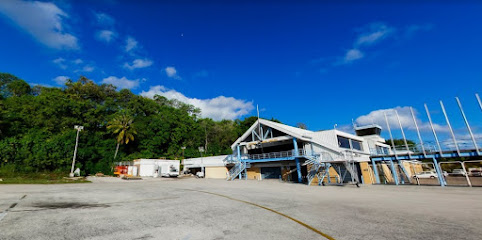
Capelle and Partner
Discover diverse shopping, dining, and entertainment at Capelle and Partner, Ronave's premier shopping destination.
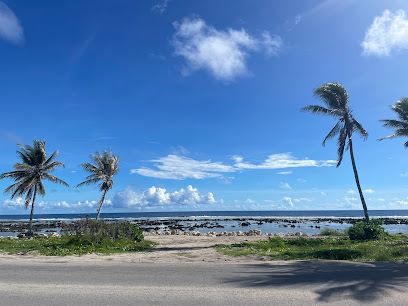
Ewa Lodge
Discover the charm of Ronave at Ewa Lodge, offering modern comforts and a peaceful escape amidst stunning natural beauty.
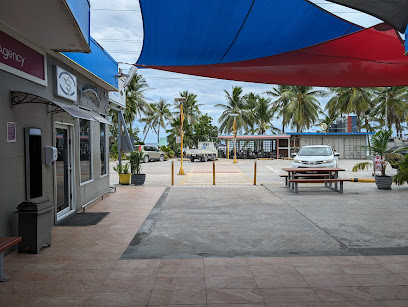
Geography of Nauru
Explore Nauru: A hidden island paradise with stunning beaches, rich history, and vibrant culture, perfect for your next travel adventure.
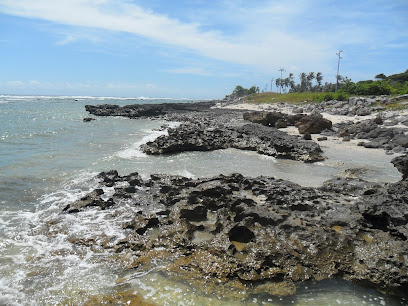
Od-N Aiwo Hotel
Discover a serene retreat at Od-N Aiwo Hotel in Boe, offering comfort and accessibility to local attractions for an unforgettable travel experience.

Parliament House
Explore the architectural beauty and historical significance of Parliament House, the seat of governance in Nauru, offering a glimpse into island politics.
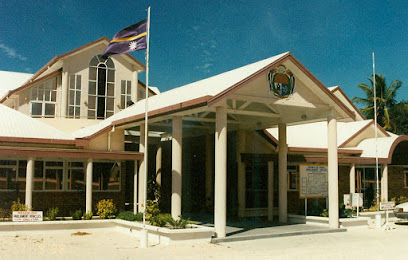
Nauru
Explore Nauru: A pristine island paradise filled with rich culture, stunning landscapes, and tranquil beaches for the ultimate getaway.
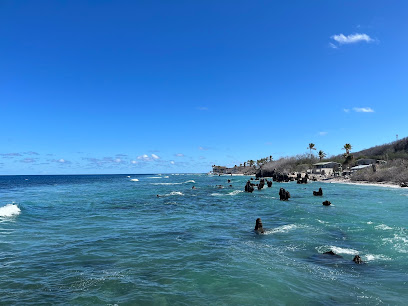
Anibare Bay
Discover the unspoiled beauty of Anibare Bay, Nauru's tropical paradise with stunning beaches, vibrant marine life, and breathtaking sunsets.
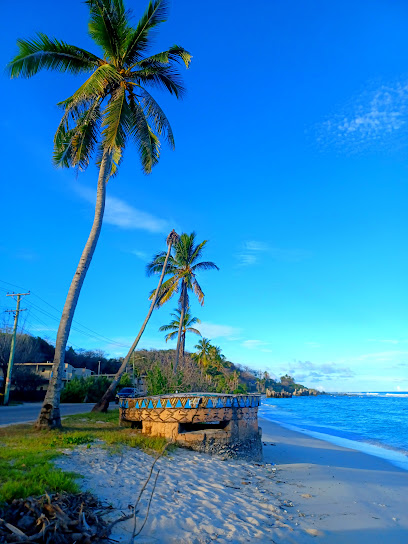
Naoero Museum
Explore the rich cultural heritage of Nauru at the Naoero Museum, where history comes alive through captivating exhibits and artifacts.
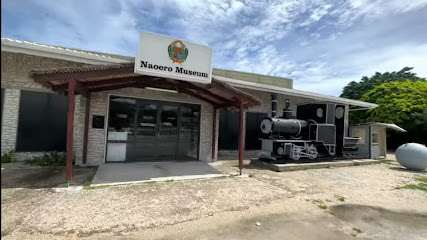
Government Office
Explore the Government Office in Yaren, a unique glimpse into Nauru's governance amidst its charming capital.
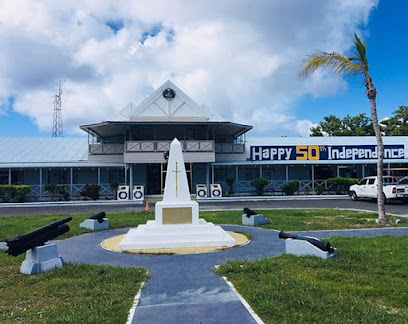
Moqua Well
Discover the tranquility of Moqua Well, a stunning natural lake perfect for swimming, relaxation, and immersing in nature's beauty.
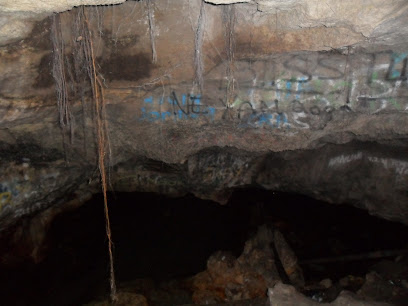
Central Plateau
Explore the Central Plateau, a breathtaking natural wonder with panoramic views, diverse wildlife, and peaceful trails for an unforgettable adventure.

Yaren Place
Discover Yaren Place, a vibrant community center in Ibwenape, where culture, connection, and local experiences await every visitor.

Moqua Caves
Discover the stunning geological formations and cultural significance of Moqua Caves in Yaren, a hidden gem in the heart of Nauru.

Essential places to dine
The Bay Restaurant
Discover exquisite local cuisine and stunning ocean views at The Bay Restaurant in Anibare.
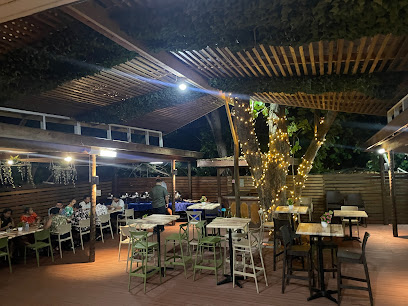
OMG Sushi Restaurant
Discover the exquisite taste of Japanese cuisine at OMG Sushi Restaurant in Orro - where every bite is a celebration of freshness and flavor.
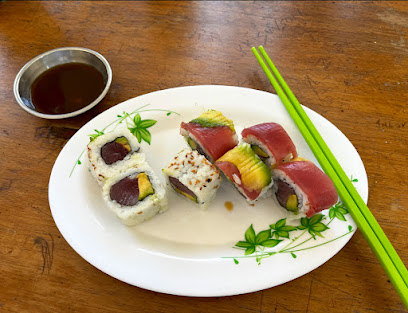
Mr Chippies
Discover Mr Chippies in Anibare - where local flavors meet friendly service in a charming setting.
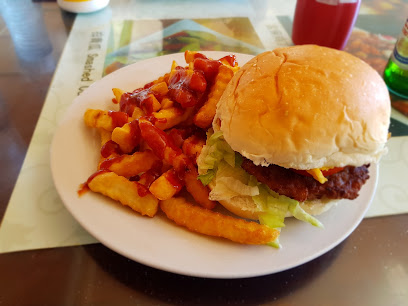
Star Kingdom
Experience authentic Asian cuisine at Star Kingdom in Boe - where every dish tells a story and every meal is a celebration.
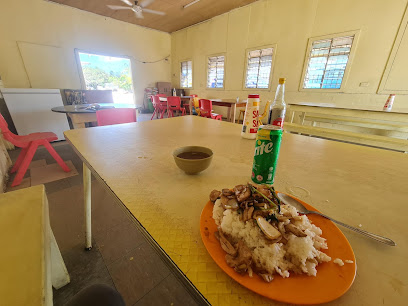
Chinese Restaurant Buada
Experience authentic Chinese cuisine at Chinese Restaurant Buada in Arenibek, where every meal is a flavorful journey into culinary tradition.

Praises Restaurant
Experience the essence of authentic Chinese dining at Praises Restaurant in Anabar with an extensive menu and inviting ambiance.
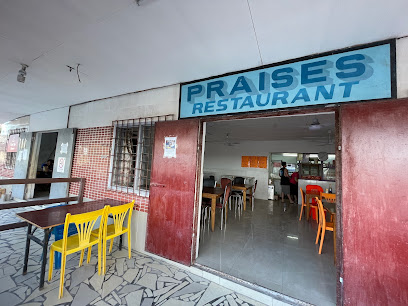
Anibare Boat Harbour Restaurant
Discover local flavors at Anibare Boat Harbour Restaurant, where fresh seafood meets stunning harbor views in a casual dining atmosphere.
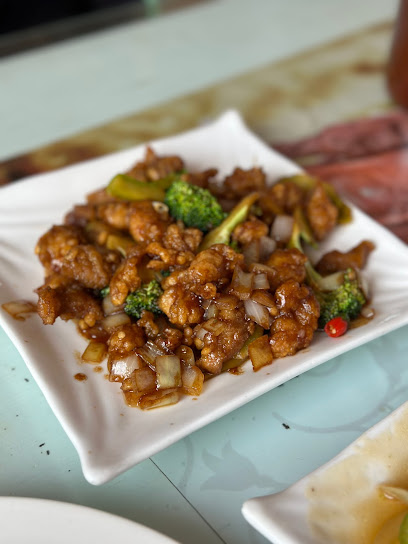
Florrowest Restaurant
Discover authentic flavors at Florrowest Restaurant in Boe – where local ingredients meet culinary creativity for an unforgettable dining experience.
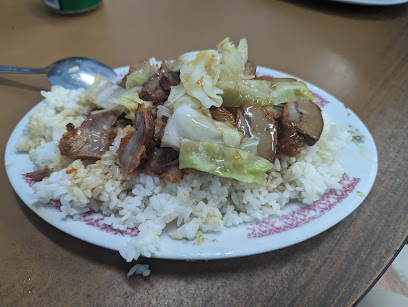
Somewhere Else in Nauru
Discover authentic Nauruan flavors at Somewhere Else in Nauru—where fresh ingredients meet delightful dining experiences.
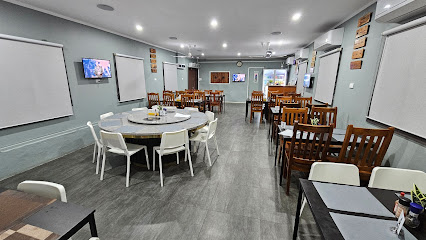
Moon River Restaurant
Experience exquisite Chinese cuisine at Moon River Restaurant along Waterfront Road in Arijejen - a culinary delight awaits!
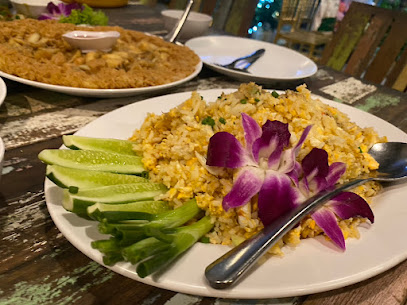
Lucky Tigeress Yum Cha
Discover the exquisite taste of traditional yum cha at Lucky Tigeress Yum Cha – your perfect breakfast spot in Arijejen.
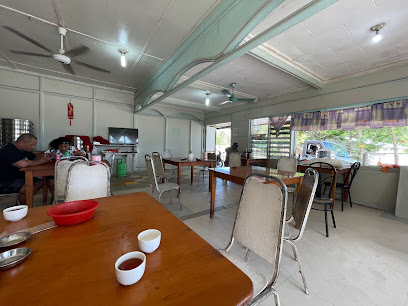
Jullem
Experience the vibrant flavors of authentic Chinese cuisine at Jullem in Anibare - a culinary delight awaits every visitor.
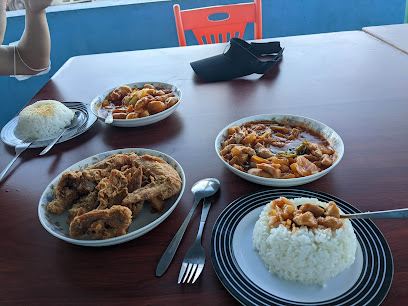
J’ RESTAURANT
Experience the rich flavors of authentic Chinese cuisine at J’ Restaurant in Arijejen, where every dish tells a story.
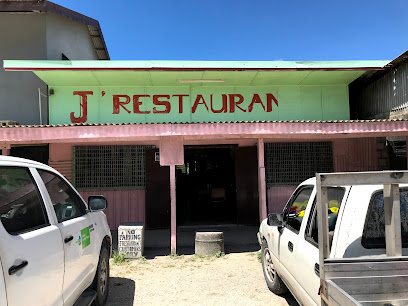
Double J
Experience culinary excellence at Double J in Ibwenape – where local flavors meet international cuisine in a warm and inviting atmosphere.
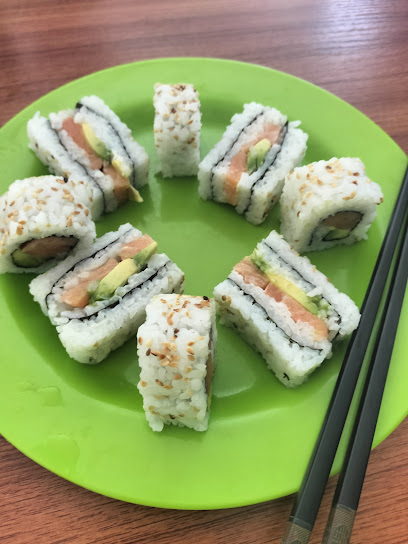
Crystal Kitchen
Discover the vibrant flavors of Anibare at Crystal Kitchen—a family-friendly restaurant offering delicious meals in a cozy atmosphere.
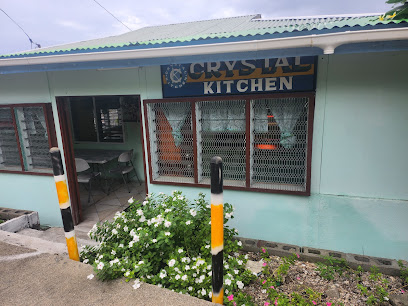
Markets, malls and hidden boutiques
Eigigu Supermarket
Explore the vibrant culinary scene at Eigigu Supermarket, Boe's go-to destination for local produce and traditional snacks.
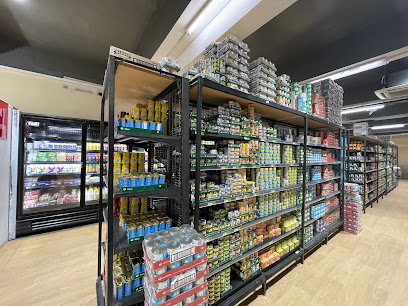
Pacific store
Discover local flavors and essentials at the Pacific Store in Nibok, your go-to grocery hub for an authentic Nauruan experience.
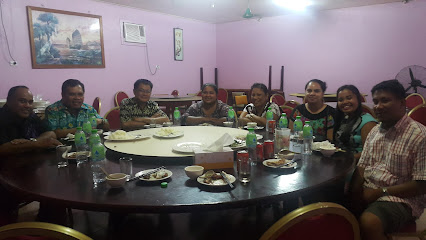
Zombies Store
Explore the local charm at Zombies Store in Yaren - a general store filled with unique finds and friendly service.

Vim No.1 Store
Explore Vim No.1 Store in Arijejen for an authentic taste of Nauru's local life, vibrant products, and warm hospitality.
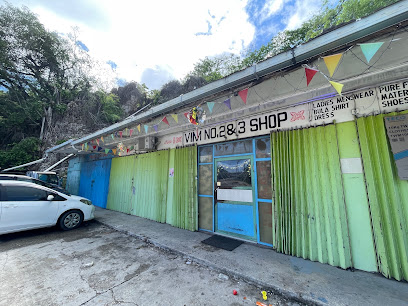
Ataro Bay Store
Explore Ataro Bay Store for a taste of local culture and a variety of grocery essentials during your travels.
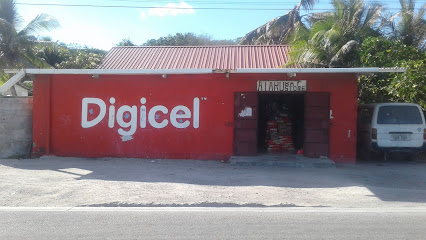
Milton Ross Store
Explore the Milton Ross Store in Yaren for a delightful shopping experience filled with local flavors and everyday essentials during your travels.
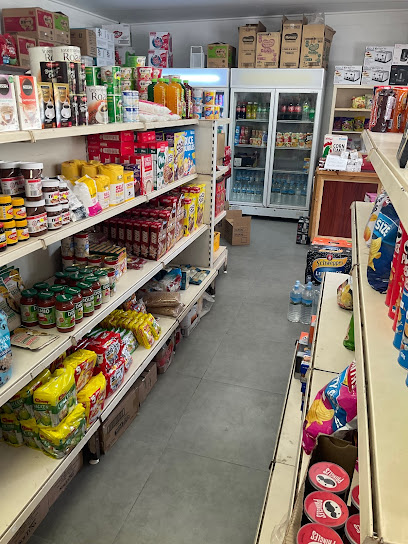
Elizabeth's Garden
Explore the unique treasures of Elizabeth's Garden in Boe, offering a delightful shopping experience with friendly service and local charm.
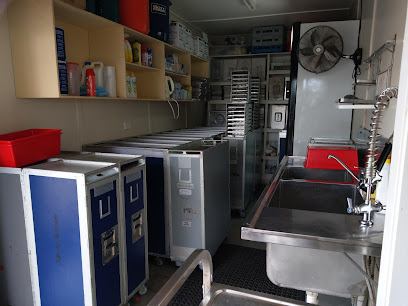
Sunset Corner Enterprise
Explore Borderline's Sunset Corner Enterprise: A charming general store offering local products, essentials, and petrol for all your travel needs.

Rainbow Store
Experience the vibrant local culture at Rainbow Store in Baiti, where convenience meets authenticity in every aisle.
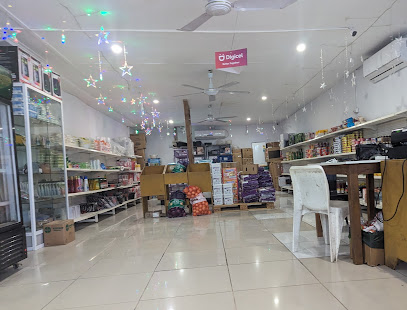
Tuka Luka Store
Explore Tuka Luka Store in Yaren for a blend of traditional and contemporary fashion, perfect for souvenirs and stylish outfits alike.

MyStore
Explore MyStore in Yaren for a taste of local life and a variety of goods that enhance your travel experience.

Pick n Save
Explore Yaren's local charm at Pick n Save, your go-to general store for snacks, essentials, and unique souvenirs.
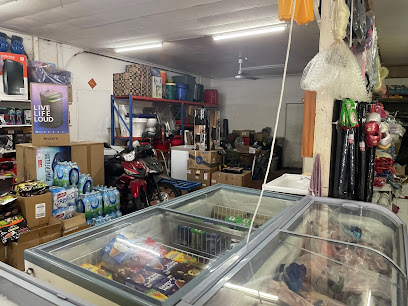
Aredetõ Store
Visit Aredetõ Store in Arenibek for a unique convenience shopping experience filled with local products and friendly service.

Halo Store
Discover authentic local products and unique souvenirs at Halo Store, the charming general store in Arenibek, perfect for tourists seeking a local experience.
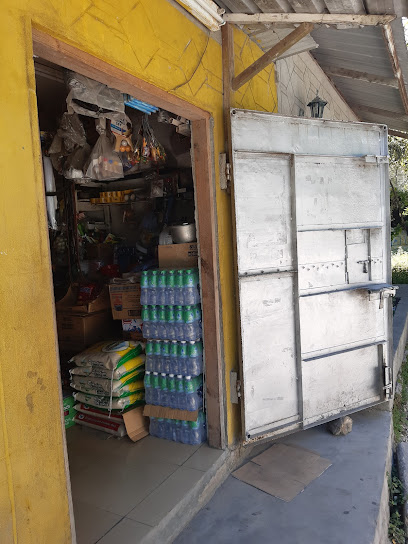
Sparkle 7
Explore Sparkle 7, the ultimate smart shop for innovative gadgets and unique gifts, showcasing local culture and creativity in every corner.

Essential bars & hidden hideouts
Nauru International Airport
Discover the beauty of Nauru from its International Airport, your first step into a tropical paradise filled with unique experiences.
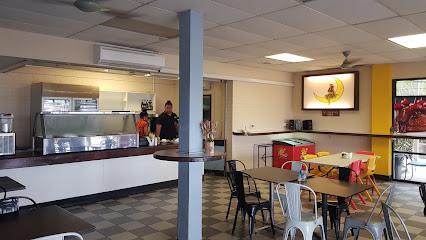
The Bay Restaurant
Experience the best of local seafood with breathtaking ocean views at The Bay Restaurant in Anibare.
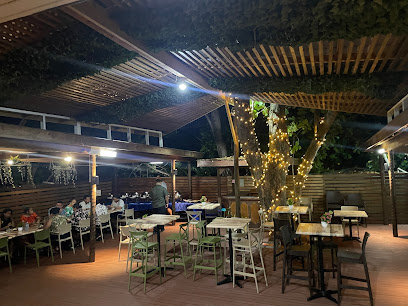
Jules On The Deck
Experience the serene charm of Jules On The Deck, a cozy bar in Nibok serving refreshing cocktails with stunning views.
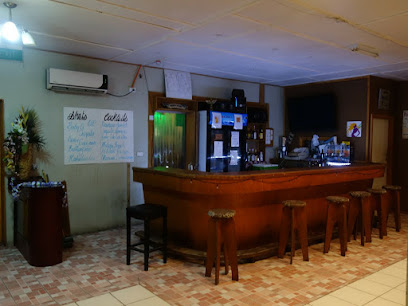
Parliament House
Discover the architectural beauty and cultural significance of Parliament House in Yaren, Nauru's vibrant capital.
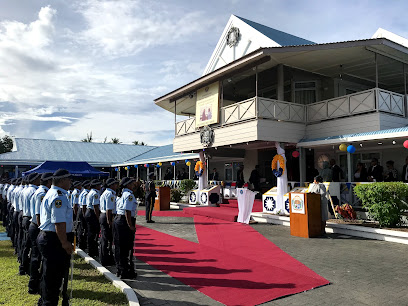
Reef Bar
Experience the tranquil charm of Reef Bar in Nauru, where refreshing drinks meet stunning beach views for an unforgettable island escape.
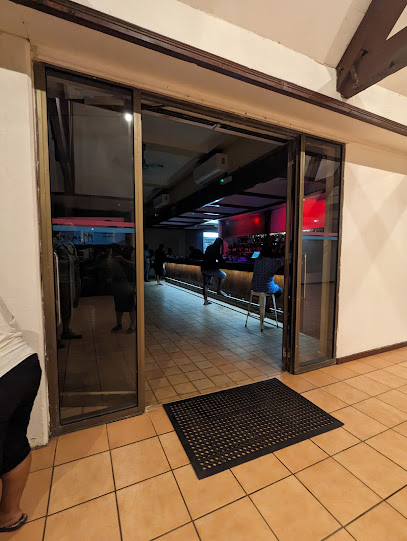
Mr Chippies
Discover the taste of fresh seafood at Mr Chippies, Anibare's beloved restaurant known for its delectable fish and chips in a stunning island setting.
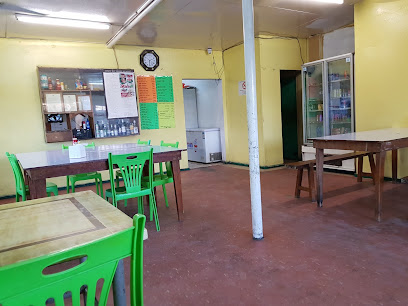
Anibare Boat Harbour Restaurant
Experience the flavors of Nauru at Anibare Boat Harbour Restaurant, where fresh seafood meets stunning seaside views.
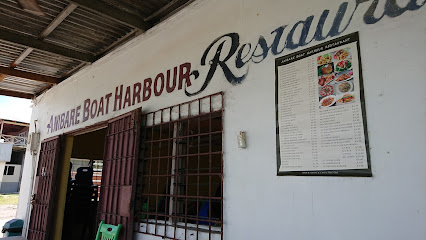
Naoero Museum
Explore Nauru's history and culture at Naoero Museum, a hidden gem showcasing the island's rich heritage and traditions.
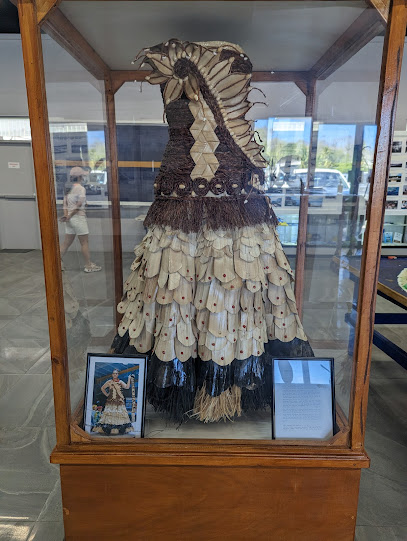
Florrowest Restaurant
Experience the rich flavors of Boe at Florrowest Restaurant, where local ingredients create culinary masterpieces in a welcoming atmosphere.
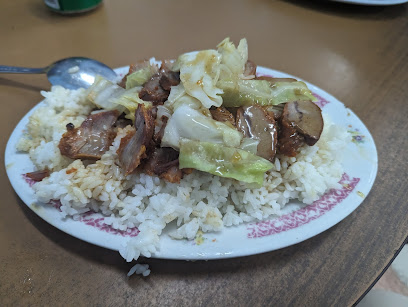
Pick n Save
Discover the local charm at Pick n Save in Yaren, your go-to general store for essentials and unique Nauruan products.
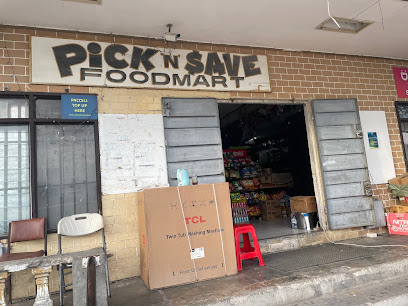
Golden Bridge Restaurant
Discover authentic Chinese flavors at Golden Bridge Restaurant in Yangor, where culinary excellence meets warm hospitality.
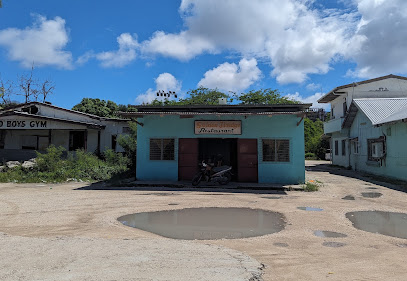
Milk Bar
Experience the delightful flavors of Milk Bar in Yangor, where every sip of milk-based beverages is a sweet treat for the senses.
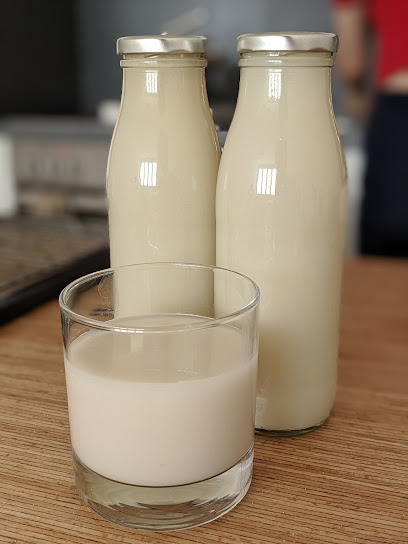
AIA Grog bar
Experience vibrant nightlife at AIA Grog Bar in Anabar, where refreshing drinks meet a lively atmosphere for an unforgettable night out.

Angel Grog Bar
Experience the vibrant nightlife of Yaren at Angel Grog Bar, the perfect spot for cocktails and socializing under the stars.

Local Phrases
-
- HelloIaorana
[Yow-rah-nah] - GoodbyeTofa
[Tow-fah] - YesE
[Eh] - NoAe
[Eye] - Please/You're welcomeFakamolemole
[Fah-kah-moh-leh-moh-leh] - Thank youFakafetai
[Fah-kah-feh-tie] - Excuse me/SorryFaamalie
[Fah-ah-mah-lee-eh] - How are you?Taema
[Tie-mah] - Fine. And you?Lelei. Oe?
[Leh-leh. Oh-eh?] - Do you speak English?Osa tautea i te reo Pālagi?
[Oh-sah tow-teh-ah ee teh reh-oh pah-lah-gee?] - I don't understandE le mafai ona malamalama
[Eh leh mah-fie oh-nah mah-lah-mah-lah-mah]
- HelloIaorana
-
- I'd like to see the menu, pleaseFaamalie, ou te fia vaega i le lipa
[Fah-ah-mah-lee, oh-oo teh fee-ah vah-eh-gah ee leh lee-pah] - I don't eat meatE leai seai meaai
[Eh leh-eye seh-eye meh-eye] - Cheers!Manuia!
[Mah-noo-ee-ah!] - I would like to pay, pleaseFaamalie, ou te fia totogi
[Fah-ah-mah-lee, oh-oo teh fee-ah toe-toh-gee]
- I'd like to see the menu, pleaseFaamalie, ou te fia vaega i le lipa
-
- Help!Fesoasoani!
[Feh-soh-ah-soh-ah-nee!] - Go away!Alu i le taeao!
[Ah-loo ee leh tah-eh-ah-oh!] - Call the Police!Telefoni i leoleo!
[Teh-leh-foh-nee ee leh-oh-leh-oh!] - Call a doctor!Telefoni i le faamasinoga!
[Teh-leh-foh-nee ee leh fah-ah-mah-see-noh-gah!] - I'm lostUa ou tauli
[Oo-ah oh tah-oo-lee] - I'm illUa ou ma'i
[Oo-ah oh mah-ee]
- Help!Fesoasoani!
-
- I'd like to buy...E te fia fesoasoani...
[Eh teh fee-ah feh-soh-ah-soh-ah-nee...] - I'm just lookingOu te tatala lava
[Oh-oo teh tah-tah-lah lah-vah] - How much is it?E fia piliki?
[Eh fee-ah pee-lee-kee?] - That's too expensiveO lea lelei
[Oh leh-ah leh-leh] - Can you lower the price?Faaualofa atu le pisinisi
[Fah-ah-oo-ah-loh-fah ah-too leh pee-see-nee-see]
- I'd like to buy...E te fia fesoasoani...
-
- What time is it?O le taimi e leai
[Oh leh tah-ee-mee eh leh-eye] - It's one o'clockO le taimi e tasi
[Oh leh tah-ee-mee eh tah-see] - Half past (10)I le igoa o le 10
[Ee leh ee-goh-ah oh leh 10] - MorningTaeao
[Tah-eh-ah-oh] - AfternoonAfiafi
[Ah-fee-ah-fee] - EveningTaeao
[Tah-eh-ah-oh] - YesterdayAnanafi
[Ah-nah-nah-fee] - TodayLenei
[Leh-neh-ee] - TomorrowAso nei
[Ah-soh neh-ee] - 1Tasi
[Tah-see] - 2Lua
[Loo-ah] - 3Tolu
[Toh-loo] - 4Fa
[Fah] - 5Lima
[Lee-mah] - 6Ono
[Oh-noh] - 7Fitu
[Fee-too] - 8Valu
[Vah-loo] - 9Iva
[Ee-vah] - 10Sefulu
[Seh-foo-loo]
- What time is it?O le taimi e leai
-
- Where's a/the...?O fea...
[Oh feh-ah...] - What's the address?O le tusi tuatusi?
[Oh leh too-see too-ah-too-see?] - Can you show me (on the map)?Faaualofa le faaali mai
[Fah-ah-oo-ah-loh-fah leh fah-ah-ah-lee mah-ee] - When's the next (bus)?Aso a lea?
[Ah-soh ah leh-ah?] - A ticket (to ....)Se faʻa tupe (i ....)
[Seh fah-ah too-peh eee ....]
- Where's a/the...?O fea...
History of Yaren
-
The area now known as Yaren has been inhabited for at least 3,000 years by the indigenous Nauruan people. These early settlers are believed to have migrated from other Pacific islands and established a unique culture centered around fishing, agriculture, and community life.
-
In the late 19th century, Nauru became a point of interest for European powers, and Yaren saw the establishment of colonial administration. Germany annexed Nauru in 1888, and the island, including Yaren, came under German rule until World War I.
-
In 1900, large deposits of phosphate were discovered in Nauru, significantly impacting Yaren and the entire island. The British Phosphate Commissioners took control of mining operations, leading to economic growth but also environmental degradation and displacement of local communities.
-
During World War II, Nauru, including Yaren, was occupied by Japanese forces from 1942 until 1945. The occupation brought significant hardship, including forced labor and food shortages, profoundly affecting the local population.
-
After World War II, Nauru came under the trusteeship of Australia, New Zealand, and the United Kingdom. Yaren became the administrative center, with efforts focused on rebuilding and developing infrastructure that had been damaged during the war.
-
On January 31, 1968, Nauru declared its independence, and Yaren was chosen as the de facto capital due to its central location and existing administrative buildings. This marked a new chapter in the island's history, with Yaren playing a crucial role in its governance and development.
-
In recent years, Yaren has continued to evolve, balancing traditional Nauruan culture with modern influences. The area hosts key government buildings, educational institutions, and cultural sites, making it a focal point for both locals and visitors.
-
Yaren is not only the administrative heart of Nauru but also a cultural hub. Traditional Nauruan customs, such as storytelling, dance, and music, are regularly celebrated here, preserving the island's rich heritage for future generations.
Yaren Essentials
-
Yaren is the capital district of Nauru, located on the island's southwestern coast. The primary point of entry is Nauru International Airport (INU), which has limited international flights mainly from Brisbane, Australia, and sometimes from Fiji and Kiribati. From the airport, Yaren is only a short drive away. There are no ferries or other passenger ships serving Nauru due to its remote location.
-
Nauru is a small island, and transportation options are limited. Most visitors get around by renting cars or using local taxis. There is no public bus system, but the island's small size makes it easy to travel between districts. Bicycles are also a popular option for getting around, and some accommodations offer them for rent. Walking is feasible within Yaren itself due to its compact size.
-
The official currency of Nauru is the Australian Dollar (AUD). Credit cards are not widely accepted, so it is advisable to carry sufficient cash. There is one bank on the island, the Bank of Nauru, where you can conduct financial transactions. ATMs are scarce, and it is wise to bring enough cash to cover your expenses.
-
Yaren is generally safe for tourists, with low crime rates. However, standard travel precautions should be taken. Avoid walking alone at night and keep an eye on your belongings. There are no specific areas in Yaren known for high crime rates targeting tourists, but always remain vigilant and aware of your surroundings.
-
In case of emergency, dial 110 for police assistance and 111 for medical emergencies. The Nauru Police Force and Nauru General Hospital are located in Yaren. It is advisable to have travel insurance that covers medical emergencies. For minor health issues, there are pharmacies in Yaren where you can purchase over-the-counter medications.
-
Fashion: Do dress modestly, especially in public areas. Avoid overly revealing clothing. Religion: Do respect local customs. While Nauru is not predominantly religious, it is important to be respectful in places of worship and during local ceremonies. Public Transport: Do be aware that public transport is minimal. Taxis and rental cars are your best options. Greetings: Do greet people with a friendly 'hello' or a handshake. Eating & Drinking: Do try local dishes and accept food offerings graciously. Don’t waste food, as it is considered impolite.
-
To experience Yaren like a local, visit the local markets where you can buy fresh seafood and traditional Nauruan goods. Engage with locals, as they are often friendly and willing to share stories about Nauru's history and culture. Don't miss visiting Anibare Bay for a beautiful beach experience and exploring the remnants of phosphate mining which has shaped much of the island's history.
Nearby Cities to Yaren
-
Things To Do in Boe
-
Things To Do in Buada
-
Things To Do in Aiwo
-
Things To Do in Anibare
-
Things To Do in Denigomodu
-
Things To Do in Uaboe
-
Things To Do in Ijuw
-
Things To Do in Anabar
-
Things To Do in Kosrae
-
Things To Do in Mili
-
Things To Do in Majuro
-
Things To Do in Aur
-
Things To Do in Lata
-
Things To Do in Auki
-
Things To Do in Tulagi





